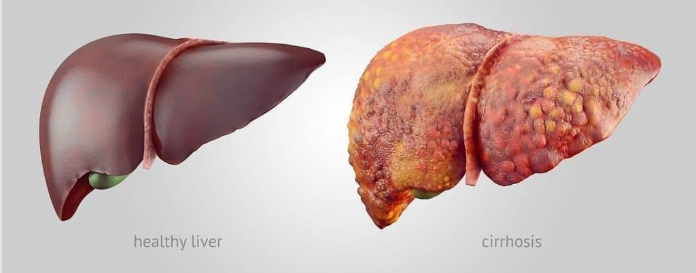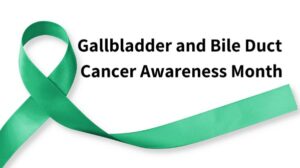Liver cancer is a serious and often life-threatening condition that affects thousands of people worldwide each year. By understanding Liver Cancer’s causes, symptoms, diagnosis, prevention, and treatment options, we can increase awareness and promote early detection, which is crucial for better outcomes.
What is Liver Cancer?
Liver cancer is a type of cancer that begins in the cells of the liver. The most common type is hepatocellular carcinoma, which starts in the main type of liver cell (hepatocyte).
Causes of Liver Cancer
Several risk factors can increase the likelihood of developing liver cancer:
- Chronic Viral Hepatitis: Long-term infection with hepatitis B or hepatitis C virus is a major risk factor.
- Cirrhosis: This is a condition where liver cells are damaged and replaced by scar tissue. It can result from chronic alcohol abuse, hepatitis infections, or other liver diseases.
- Non-Alcoholic Fatty Liver Disease (NAFLD): Excess fat in the liver can lead to inflammation and damage.
- Genetic Disorders: Conditions like hemochromatosis and Wilson’s disease can increase the risk.
- Aflatoxin Exposure: Consuming foods contaminated with aflatoxins, which are toxins produced by certain molds, can increase risk.
- Lifestyle Factors: Obesity, diabetes, and excessive alcohol consumption are significant risk factors.
Symptoms of Liver Cancer
In its early stages, liver cancer might not cause noticeable symptoms. However, as the disease progresses, the following symptoms may appear:
- Unintended Weight Loss: Significant and unexplained loss of weight.
- Loss of Appetite: A reduced desire to eat or feeling full after a small meal.
- Upper Abdominal Pain: Discomfort or pain in the upper right side of the abdomen.
- Nausea and Vomiting: Persistent nausea and vomiting.
- General Weakness and Fatigue: Feeling unusually weak and tired.
- Swelling in the Abdomen: Abdominal bloating or swelling.
- Jaundice: Yellowing of the skin and eyes due to liver dysfunction.
Diagnosis of Liver Cancer
Early detection of liver cancer is vital for effective treatment. Various methods are used to diagnose liver cancer:
- Physical Examination: A doctor may assess the abdomen for lumps or abnormalities.
- Blood Tests: Tests such as alpha-fetoprotein (AFP) can indicate liver cancer.
- Imaging Tests: Ultrasound, CT scans, and MRI are used to visualize the liver and identify tumours.
- Liver Biopsy: A small sample of liver tissue is taken and examined under a microscope to confirm cancer.
Prevention of Liver Cancer
While not all cases of liver cancer can be prevented, several strategies can reduce the risk:
- Vaccination: Getting vaccinated against hepatitis B.
- Regular Screening: Especially for those at high risk, such as people with cirrhosis or chronic hepatitis.
- Healthy Lifestyle: Maintaining a healthy weight, limiting alcohol consumption, and avoiding exposure to aflatoxins.
- Managing Underlying Conditions: Properly managing conditions like diabetes and non-alcoholic fatty liver disease.

Treatment Options for Liver Cancer
The treatment for liver cancer depends on the stage of the disease, the liver’s overall condition, and the patient’s health. Common treatment options include:
- Surgery: Surgical removal of the tumour or a liver transplant can be effective in early-stage liver cancer.
- Localised Treatments: Techniques such as radiofrequency ablation, cryoablation, and embolisation target cancer cells without affecting the entire body.
- Radiation Therapy: Uses high-energy rays to kill cancer cells.
- Targeted Therapy: Drugs that specifically target cancer cells.
- Immunotherapy: Boosts the immune system to fight cancer.
- Chemotherapy: Uses drugs to kill rapidly growing cells, including cancer cells.
Frequently Asked Questions
1. What are the main symptoms of liver cancer?
The main symptoms of liver cancer include unintended weight loss, loss of appetite, upper abdominal pain, nausea, fatigue, abdominal swelling, and jaundice.
2. How can liver cancer be prevented?
Preventive measures include vaccination against hepatitis B, regular screening for high-risk individuals, maintaining a healthy lifestyle, and managing underlying conditions like diabetes and non-alcoholic fatty liver disease.
3. What are the treatment options for liver cancer?
Treatment options for liver cancer include surgery, localised treatments (like ablation and embolisation), radiation therapy, targeted therapy, immunotherapy, and chemotherapy.
Conclusion
Raising awareness about liver cancer’s causes, symptoms, diagnosis, prevention, and treatment is essential in the fight against this disease. By understanding and recognising the signs early, individuals can seek timely medical intervention, leading to better outcomes. Stay informed, stay healthy, and don’t hesitate to reach out to healthcare professionals if you have any concerns regarding liver health.




